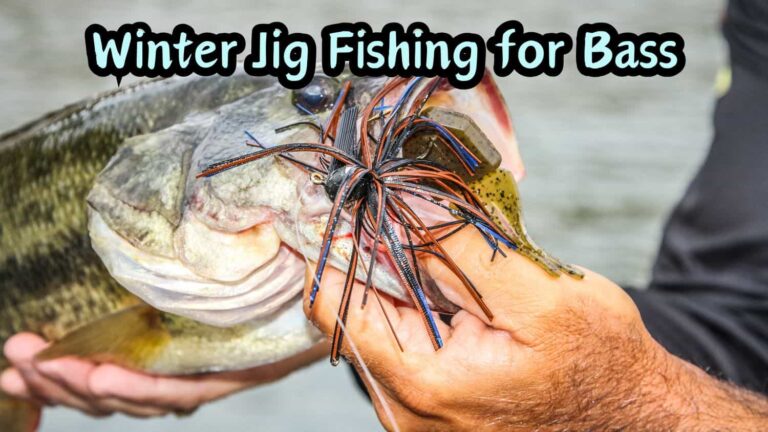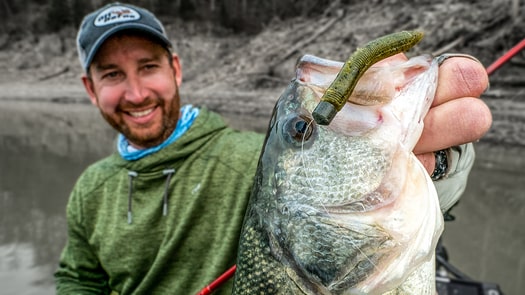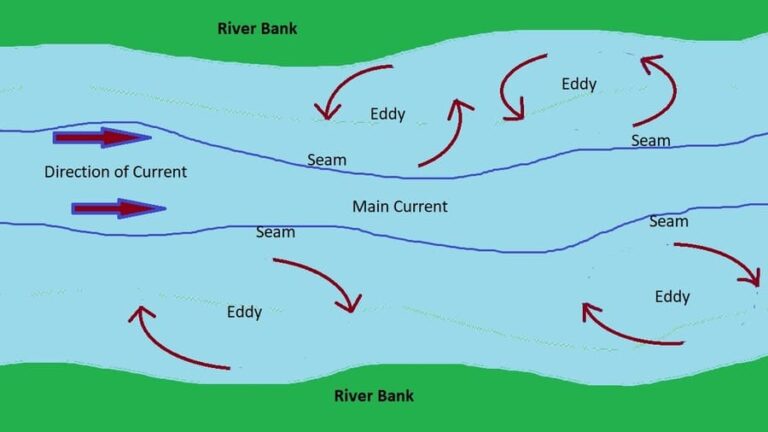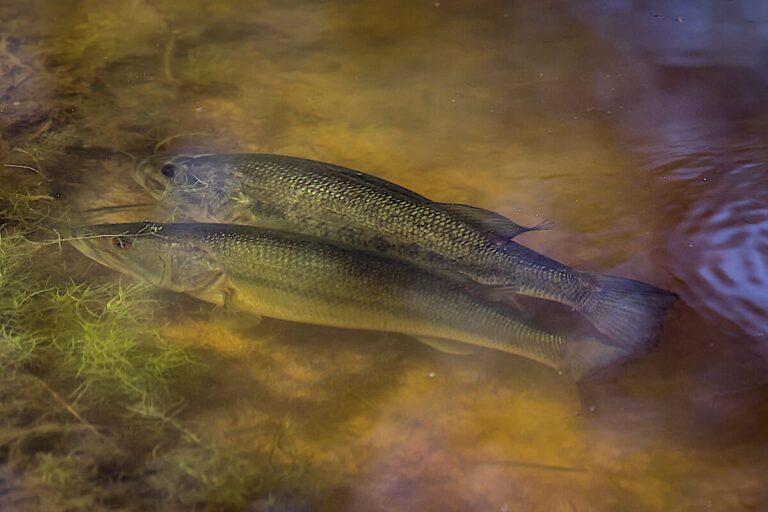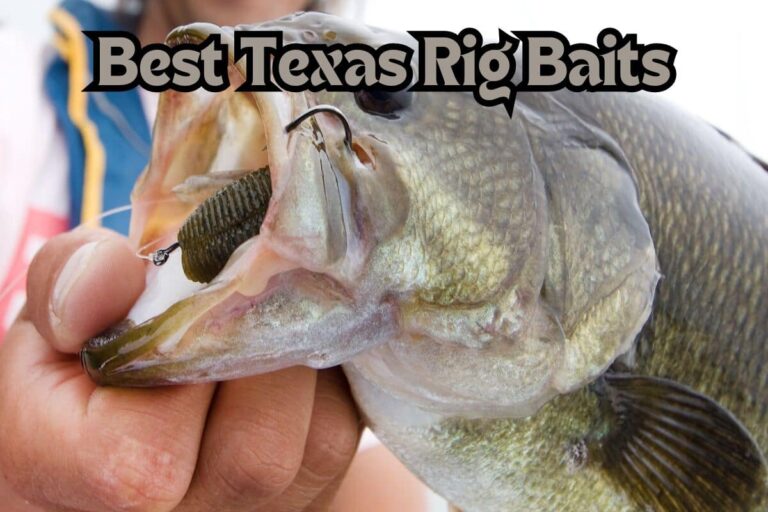Fall Bass Fishing 101
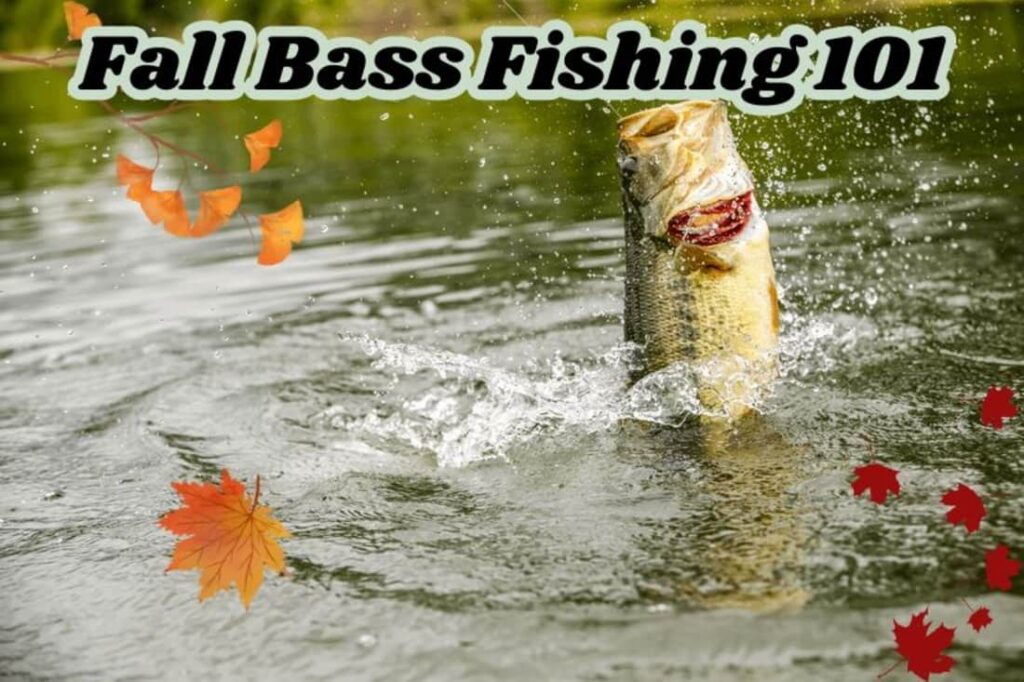
The fall season might just be the best bass fishing of the year. Bass are feeding up and easy to catch.
And as anglers, we don’t have to fish in the hot summer sun.
The increased fishing success paired with the cooler temperatures make fall bass fishing unbeatable.
Fall Bass Behavior
During the fall months, bass are going to be at their most aggressive all year.
The water temperatures are still warm enough that they have high metabolisms and can hang out in all water depths.
And the bass know that the long, difficult winter is around the corner.
So their number one goal is to eat as much as they can to fatten up for the cold months that are approaching.
Bass will be primarily feeding on schooling baitfish. These large baitfish schools allow bass to gorge up in a very quick amount of time.
If you are fishing small ponds that don’t have shad, bluegills will tend to school up this time of year, and bass will turn their focus towards them.
Where to Find Fall Bass
Contrary to just about every other season, fall bass tend to be very spread out.
They are more concerned about eating than safety, so they will push off of the shallow cover or deep grass from the summer.
These bass will be more suspended and cruising around in search of forage.
Fall bass are on the hunt. So rather than hiding behind cover and ambushing prey, the bass are on the offensive.
They are actively swimming around looking to crush their meals. Simply put, fall bass will be spread out across the lakes.
They will be around cover, in open water, and throughout all water depths. This is further impacted by the fall turnover.
Fall Turnover
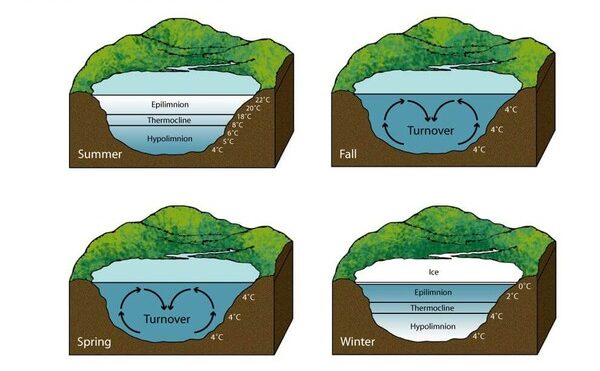
The fall turnover is pretty easy to understand. First, understand that during the summer months, the water towards the surface is much warmer than the water at the bottom.
This large temperature discrepancy prevents the two water columns from mixing.
But during the fall season when air temperatures fall, and the nights get very cool, the water temperature near the surface drops.
Once the water above water temperature drops to the same level as the lower water column, the water levels begin to mix.
This is the fall turnover. The water quickly mixes and stirs lots of sediment, nutrient, bugs, and other debris all throughout the lake.
Like I said above, this also cause the bass to spread out more because the water temperature is the same all throughout the water.
For the first few days of the fall turnover, bass will find cover and hold a bit tightly to it because of the quick reduction in water clarity.
But once the dust settles, they pull back off of the cover and go back on the hunt.
Key Fall Bass Fishing Tips:
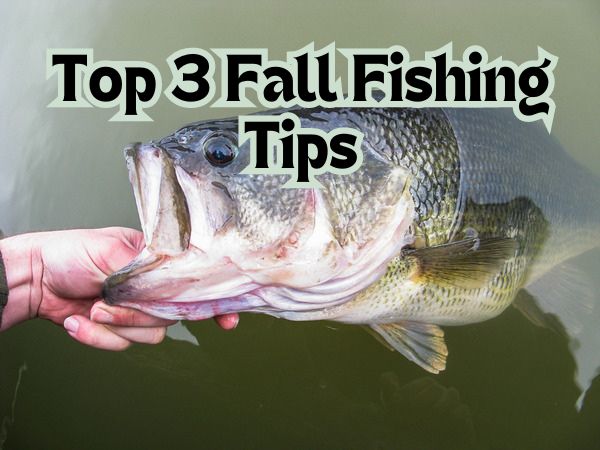
Prioritize Power Fishing
These bass are aggressive and on the hunt. So you as the angler need to do the same thing.
Fish faster, more aggressive lures that will cover lots of water so that you can find the bass that are spread out.
You don’t need to use huge lures, but they should be power style lures that can cover water, make some sound, and put off some vibration.
Of course, if a very hot or cold front rolls through, you can switch back to some finesse presentations during the front.
But the majority of your fishing should be power focused.
Baitfish Profiles and Colors
As I was saying earlier, fall bass are primarily feeding on baitfish.
They rise up off the bottom and don’t feed as much on crawfish, worms, eels, or other bottom forage.
In large lakes or ponds with lots of shad, do your best to imitate shad. White or silver lures with a more slender profile work best.
If you are pond angler and your bodies of water only have bluegill, imitate the bluegill.
A big chunkier and wider lures with a bluegill pattern are perfect.
Towater Frenzy
Now, part of this tip is just about having fun. Because after all, fun is what fishing is all about. And it doesn’t get more fun than topwater blowups.
But even beyond the pure enjoyment side of things, topwater lures are tremendously effective during the autumn months.
Especially topwaters that you can still cover lots of water with such as a buzzbait or walking bait.
A popping frog can even be a great lure when there are tons of autumn leaves that are floating on the surface.
5 Best Fall Lures
It’s very tuff to narrow it down to only 5 lures because the fall season is a tremendous time to throw lots of lures.
But based on my experience, these have got be be my top 5.
1. Spinnerbait
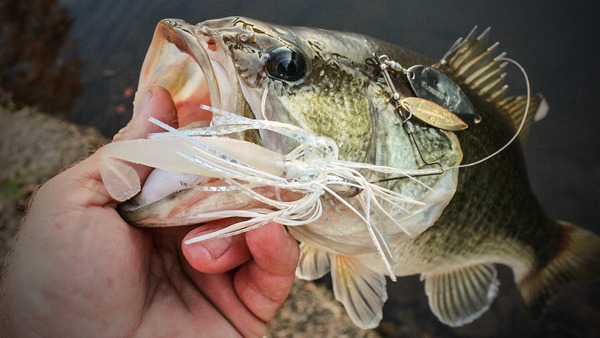
By design, a spinnerbait essentially imitates a small school of baitfish. Almost like a mini Alabama rig.
And since bass are honing in on schooling baitfish, it stands to reason that spinnerbaits are a tremendous fall bass lure.
A double willow leaf spinnerbait is my favorite setup of fall fishing because I can retrieve it a lot faster and the extra flash helps draw reaction strikes.
Even in stained water, I still throw the double willow blade spinnerbaits.
2. Walking Bait
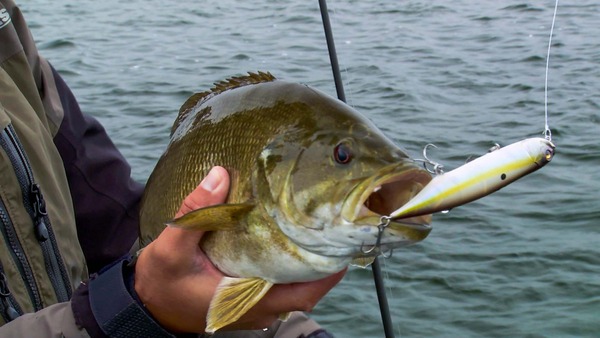
A spook style lure is my go-to topwater bait for the fall. There is just something about the walk the dog action that gets bass fired up this time of year.
The great thing about a walking bait in the fall is that it has a tremendous calling ability.
Any suspending bass within 15-20 feet will hear and feel the lure darting across the surface.
Even in deeper water, a walk the dog style lure will call up fall bass into a massive blowup.
3. Squarebill Crankbait
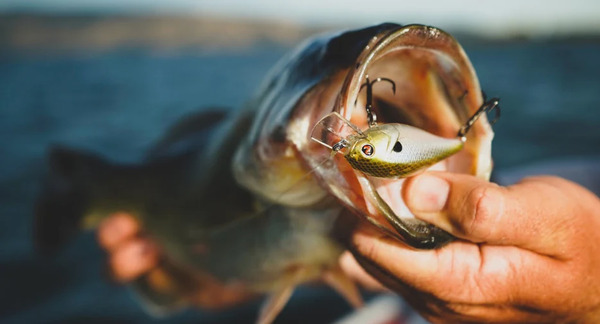
The squarebill crankbait might just be the best pond fishing lure for the fall. Especially if that pond doesn’t have any shad.
The squarebill is a natural bluegill profile with it’s wider body and swimming motion. And most ponds are around 5-8 feet deep.
This means a 3-4 foot diving crankbait like a squarebill is perfect for covering water all throughout the pond.
Crankbaits can be very difficult to use during the spring and summer months because the ponds are infested with grass, algae, and pond scum.
But once that stuff starts to die out in the fall, a squarebill is a killer option.
4. Lipless Crankbait
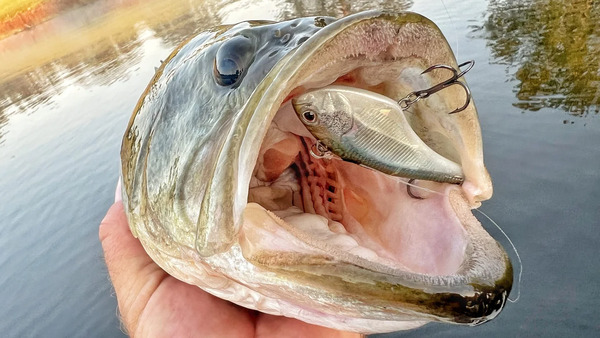
The lipless crankbait really shines during the second half of the fall season.
When bass have moved out a bit deeper and you need to get your lure down closer to them.
I almost never take off a lipless crankbait during those late-fall weeks when bass are still active but not as shallow.
A straight retrieve with occasional jerks and pauses imitates an escaping shad and gets crushed.
Speed is the name of the game with lipless fishing this time of year. Reel fast and erratic and try to force a reaction strike.
5. Glide Bait
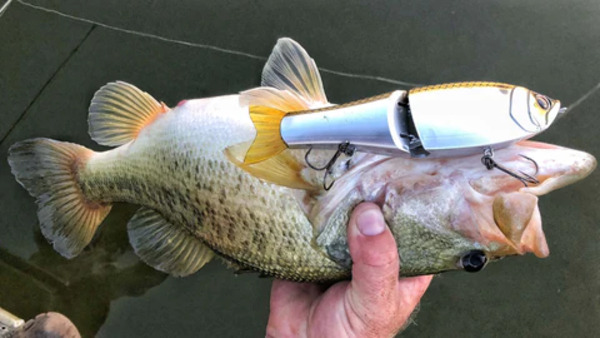
When big bass are trying to bulk up for the winter season, they often upsize the forage that they target.
And a glide bait is just that. A bigger forage. One great advantage of a glide baits is that it displaces a lot of water in a natural way.
What I mean by this is that most loud or high vibration lures aren’t all that natural.
I mean real baitfish don’t have rattles, spinning blades, or super wide wobbling actions.
The glide bait moves and displaces water very naturally, just like a real bluegill or shad.
But since it is such a big lure, it pushes and moves lots of water even without erratic or strange movements.
This can get more bites from the bigger, wiser bass that have been tricked by other lures before.
Although you aren’t going to get as many bites with a big glide bait, you are going to catch some giant bass on them.
Reeling this In
Fall might just be the best season for bass fishing. As bass aggressively feed to prepare for the coming winter, anglers can enjoy increased success without the scorching summer heat.
The seasonal behaviors of bass, coupled with the fall turnover, result in bass being more spread out and actively hunting for food, making them easier to catch.
Prioritizing power fishing techniques and using lures that mimic baitfish can yield great results.
Whether you prefer the excitement of topwater fishing or the effectiveness of spinnerbaits and crankbaits, fall offers a unique and rewarding bass fishing experience.
So, gear up and take advantage of the cooler temperatures and active bass this season.

